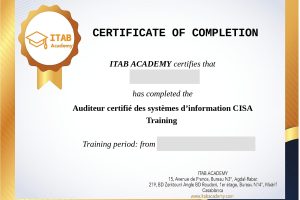Becoming a Certified Coach: Your Path to Empowering Others**
Coaching has emerged as a transformative profession, empowering individuals to unlock their potential, achieve their goals, and navigate life’s challenges with confidence. If you’re passionate about helping others succeed and facilitating positive change, pursuing a coaching certification can provide you with the skills, knowledge, and credentials needed to embark on a fulfilling career in coaching. In this guide, we’ll explore the significance of coaching certification, the benefits it offers, and the steps to becoming a certified coach.
**1. Understanding Coaching Certification**
– **What is Coaching Certification?**: Coaching certification is a formal process that validates an individual’s coaching skills, competencies, and ethical standards. It provides credibility and recognition within the coaching industry and ensures adherence to professional standards and best practices.
– **Types of Coaching Certification**: There are various types of coaching certification programs available, ranging from general coaching certifications to specialized certifications in areas such as life coaching, executive coaching, career coaching, health coaching, and more. Choose a certification program that aligns with your interests, goals, and target clientele.
**2. Benefits of Coaching Certification**
– **Credibility and Recognition**: Certification demonstrates your commitment to professional development and adherence to ethical standards, enhancing your credibility and recognition as a coach.
– **Enhanced Skills and Competencies**: Certification programs provide comprehensive training in coaching methodologies, techniques, and best practices, equipping you with the skills and competencies needed to coach effectively.
– **Access to Opportunities**: Certified coaches often have access to a wider range of coaching opportunities, including corporate coaching engagements, speaking engagements, workshops, and consulting opportunities.
– **Networking and Community**: Certification programs often include access to a network of coaches, mentors, and industry experts, providing opportunities for collaboration, support, and ongoing learning.
– **Client Confidence**: Clients are more likely to trust and hire certified coaches who have undergone formal training and adhere to professional standards, increasing your chances of attracting and retaining clients.
**3. Steps to Becoming a Certified Coach**
– **Research Certification Programs**: Research coaching certification programs offered by reputable coaching organizations, accrediting bodies, or professional associations. Consider factors such as program curriculum, faculty expertise, accreditation status, and cost.
– **Enroll in a Certification Program**: Choose a certification program that aligns with your goals and interests and enroll in the program. Most certification programs include a combination of online courses, in-person workshops, mentor coaching, and practical experience requirements.
– **Complete Training Requirements**: Fulfill the training requirements of the certification program, which may include attending training sessions, completing coursework, participating in coaching practicum, and receiving mentorship and feedback from experienced coaches.
– **Pass Certification Exam**: Some certification programs require candidates to pass a certification exam to demonstrate proficiency in coaching competencies, methodologies, and ethical standards. Prepare for the exam by reviewing course materials, practicing coaching skills, and seeking feedback from mentors.
– **Obtain Certification**: Upon successfully completing the certification requirements, you will receive your coaching certification, along with any associated credentials or designations. Celebrate your achievement and leverage your certification to pursue coaching opportunities and make a positive impact in the lives of others.
**Conclusion**
Becoming a certified coach is a rewarding journey that empowers you to make a meaningful difference in the lives of others. By obtaining a coaching certification, you gain credibility, recognition, and the necessary skills and competencies to coach effectively and ethically. Whether you aspire to become a life coach, executive coach, career coach, or specialize in a specific niche, certification provides you with the foundation and credentials needed to succeed in the coaching profession. Embrace the journey, invest in your professional development, and embark on a fulfilling career as a certified coach.




